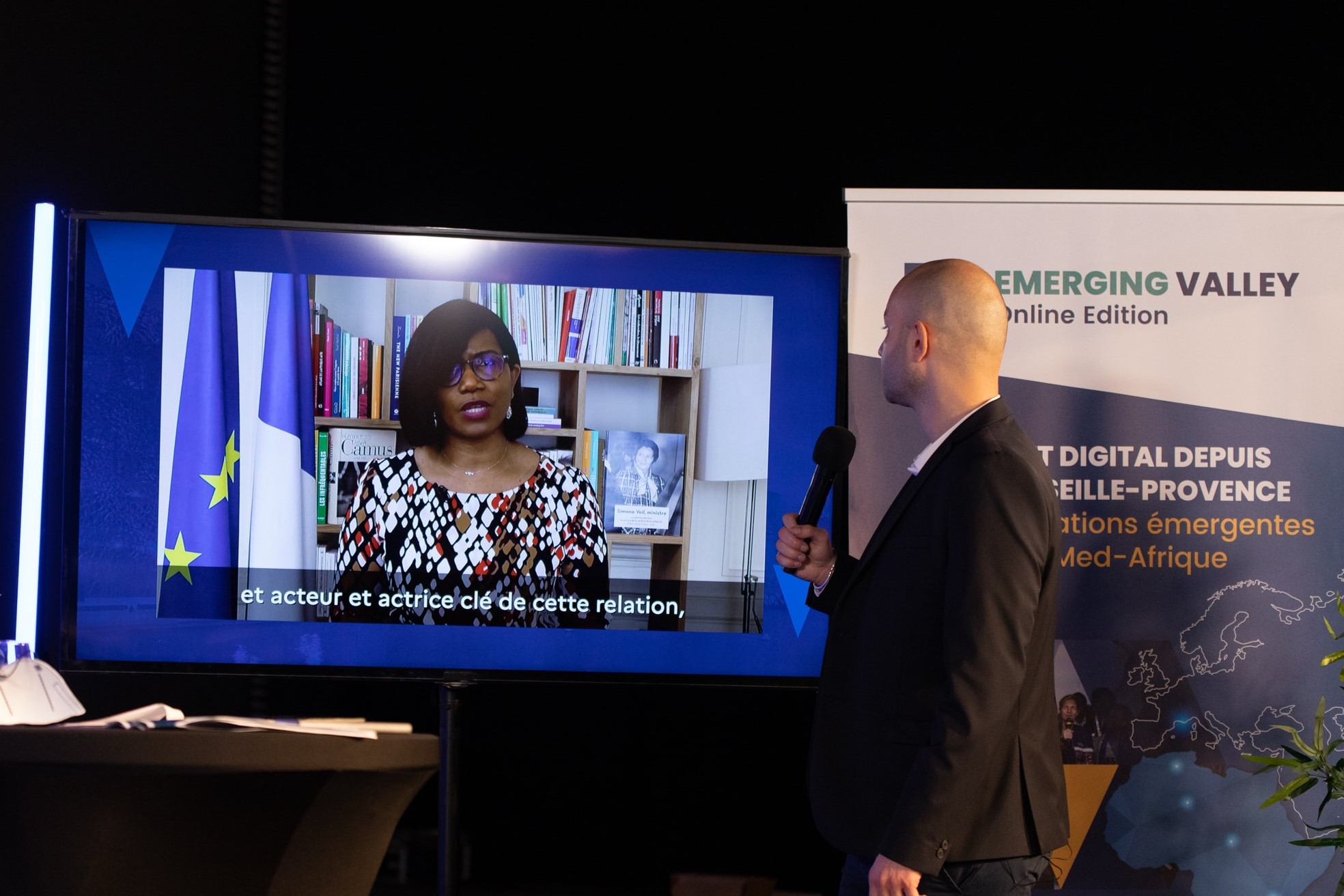Founder of EMERGING Valley – the Europe-Africa summit on innovation, whose 4th edition was recently held in France-, and founder of StartupBRICS, an online media dedicated to Tech news and entrepreneurs in emerging countries, as well as author of a book ‘Startup Lions’, which focuses on African Tech, Samir Abdelkrim talks about new trends, issues and challenges facing African innovation in the context of the COVID-19 pandemic.
What is your assessment of the 4th edition of Emerging Valley? Did you observe any new trends or issues emerging for African innovation?
The 4th edition of EMERGING Valley, which was unprecedented in terms of its 100% digital format as well as its context, sought to respond to two imperatives: that of resilience, which was the guiding principle of the summit, but also that of coming together, after a very difficult year for our ecosystems. By bringing together 2,300 participants and 210 speakers over two days, across 45 countries, we managed to unlock the exchange and debates around the main African-European digital challenges. The inclusive and sustainable digital partnership between the two continents, the strengthening of alliances between startups and corporates through open innovation strategies, the future of female entrepreneurship, the breakthrough of African creative and cultural industries or the maintenance of African venture capital investment levels in the face of Covid-19 are all subjects that we have highlighted for this 4th edition, and which are the major challenges of African tech today and tomorrow.
What is the impact of covid-19 on African start-ups?
Like everywhere else, the pandemic has hit the African continent very hard, not so much in health terms, given the figures recorded, but more in economic and social terms. The international economy and trade, on which Africa is so dependent, has been considerably weakened, with an indirect strong impact on African civil society. It is still very difficult to arrange lockdowns in these societies where informal work is the basis of the economy: there is less money in the system and many people risk losing their jobs. The impact is, therefore, real, and the tech ecosystems are not isolated from the rest of the economy, quite the contrary: their startups are largely dependent on the order books of Small and Medium-sized Enterprises, which have been among the most exposed to the risk of social breakdown. However, the crisis has also revealed the resilience of the continent’s tech entrepreneurs, who have once again demonstrated their agility and capacity for disruption.
There has been a tremendous mobilisation of African Tech communities, first and foremost the ‘Makers’, who from the University of Pretoria, to the Congolese “Masks for All” movement, via Algerian and Moroccan Makers and Tunisian students, have been making masks and respirator parts at short notice in their FabLabs and PrintFarms, thus offering a precious help to health care workers and services.
What are the opportunities to be seized (the most promising sectors), and the greatest challenges to be met?
This has already been commented widely, but Covid-19 has been a real catalyst for digital, and we have seen a forced digitalisation of companies in all sectors of the economy. Dematerialisation has been a driving force for many businesses, led by the ED-Tech (Education Technology)sector , which has mobilised for continuous access to education with a large number of free online apprenticeships. Online training and work support solutions have proliferated. Similarly, the entertainment sector seems to establish itself impressively, with streaming and gaming platforms leading the way, although this unfortunately only concerns the connected part of the planet. And such poor connectivity, especially in rural areas, will certainly be the biggest challenge in the years to come.
FinTech and e-health are also among the most promising sectors. Mobile money solutions have been decisive in the adoption of barrier gestures, and the leaders of mobile money in Africa have not hesitated to lower their transaction fees – or even to abolish them completely – to contribute to the fight against the Coronavirus. On the e-health side, the resilience and ability to reinvent themselves of many health startups has created a real proof of concept of their effectiveness, which has translated into figures, with impressive fundraising by the sector in this year of pandemic. To be followed!

What is the comparative advantage of African start-ups over others?
It is often said that the best innovations are born out of frustration. Creating from scratch and evolving in an environment where the public sector is very weak and where everything has to be reinvented, has created a unique mindset within African communities. A concept that I theorised and deciphered in my book, ‘Startup Lions, at the heart of African Tech’¹ and called ‘organic innovation’. Creating with little, quickly and in an ultra-functional way to meet immediate needs by offering affordable services to all: these are the many constraints that weigh on these entrepreneurs and you will easily understand that the solutions that breakthrough and emerge from this type of universe are real rockets, inspiring and real social innovations! These comparative advantages are increasingly valued by our societies.
The objective of EMERGING Valley, by bringing together key innovation players from Africa and Europe, is to create bridges between the two continents. Could you give us some examples of concrete projects that materialise these bridges?
The entrepreneurs and projects that best define this relationship can be found at EMERGING Valley: whether it is Ange Frédérick Balma, whose company Sinilux (based in Marseille) is deploying energy efficiency and broadband connectivity solutions in grey and white areas across many African countries, (but also in France and Haiti), or Jean-Marc Philip and his company Oshun, supported by the Aix-Marseille Provence Metropolis to develop solutions for access to drinking water in West Africa, or the “Africa Europe Innovation Partnership” programme of the European Commission, our partner in this edition, which strengthens cooperation between European and African tech hubs, the relevance of the Europe-Africa digital alliance is everywhere!
What is missing in Africa’s innovation ecosystems to be both more inclusive and efficient?
Visibility, financial support and strengthening of partnerships, but we have been working on this for 4 years already, with the support of our historical partners in the territory and through projects such as EMERGING Valley, SIBC (Social & Inclusive Business Camp) or EMERGING Mediterranean: things are moving in the right direction!
What are the most inspiring innovation ecosystems you have discovered in Africa that could be replicated in other African, Caribbean and Pacific countries?
I invite you to discover (or rediscover!) all these ecosystems on the replays of the Conference available on our YouTube channel: South Africa, Algeria, Libya, Gabon or Djibouti. All of them are brimming with ideas and digital proposals with great potential. You will meet these tech ecosystems from the four corners of the continent, directly presented by their key players. How to scale up to a continental dimension for an African startup, how to set up a business in a country in crisis, how to accelerate social inclusion through digital or how to exploit data for start-ups: these are all issues shared by our ecosystems and whose answers from the field can undoubtedly be replicated in the Caribbean and the Pacific regions.
¹Between 2014 and 2018, Samir Abdelkrim travelled across Africa and analysed the digital ecosystems of 25 African countries. This field experience led to this book ‘Startup Lions, at the heart of African Tech’.
.
